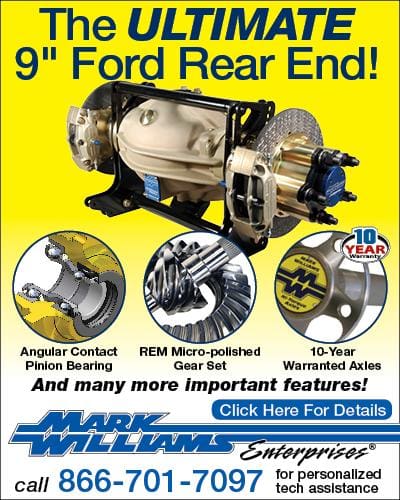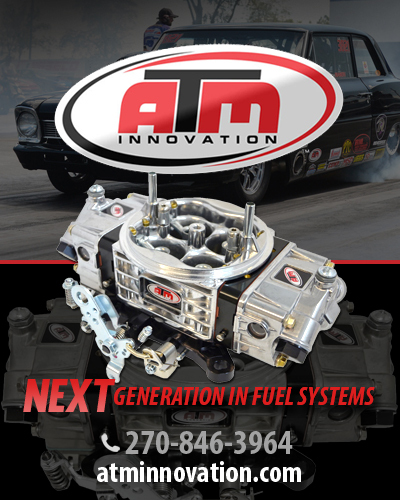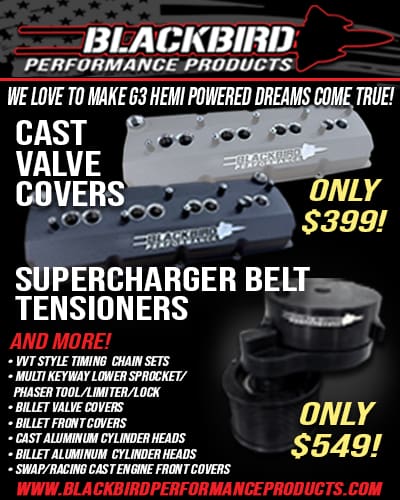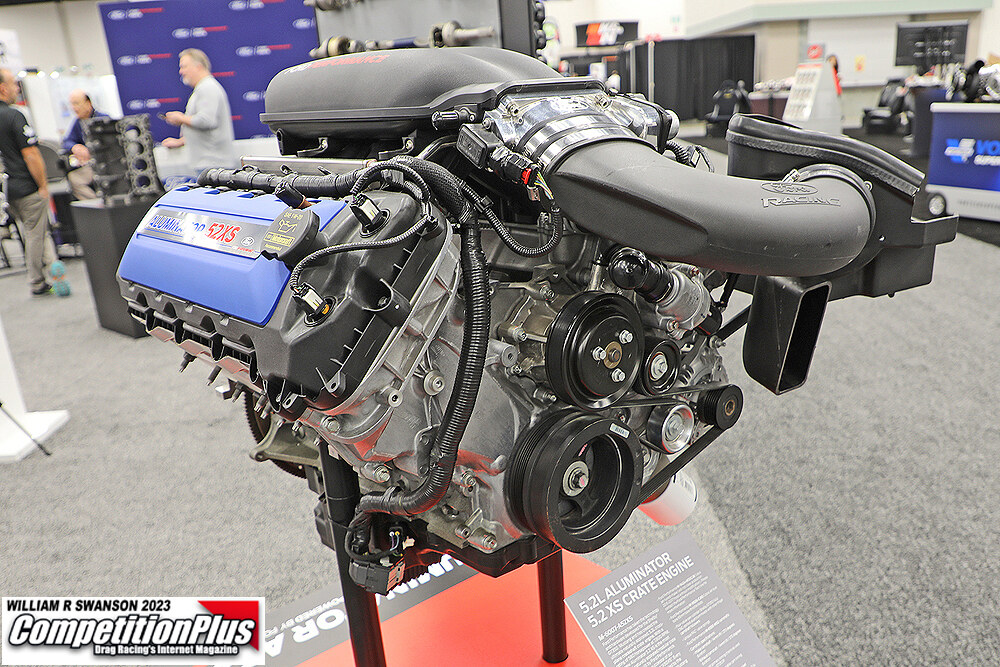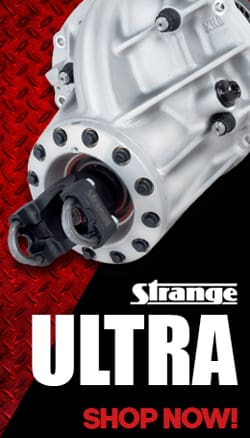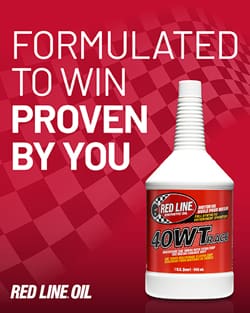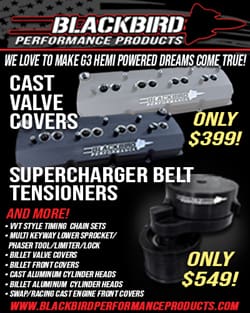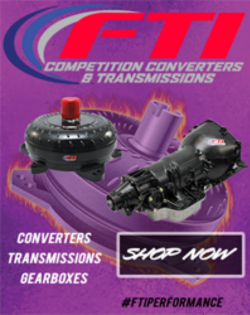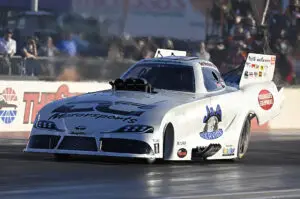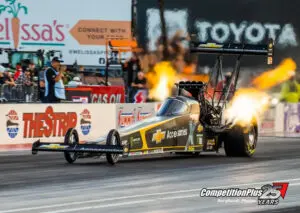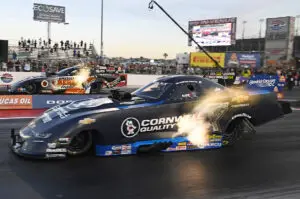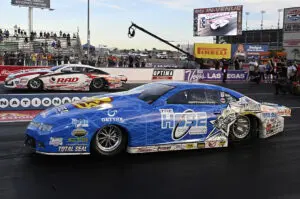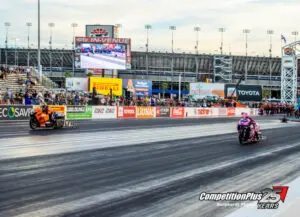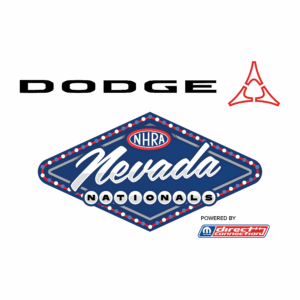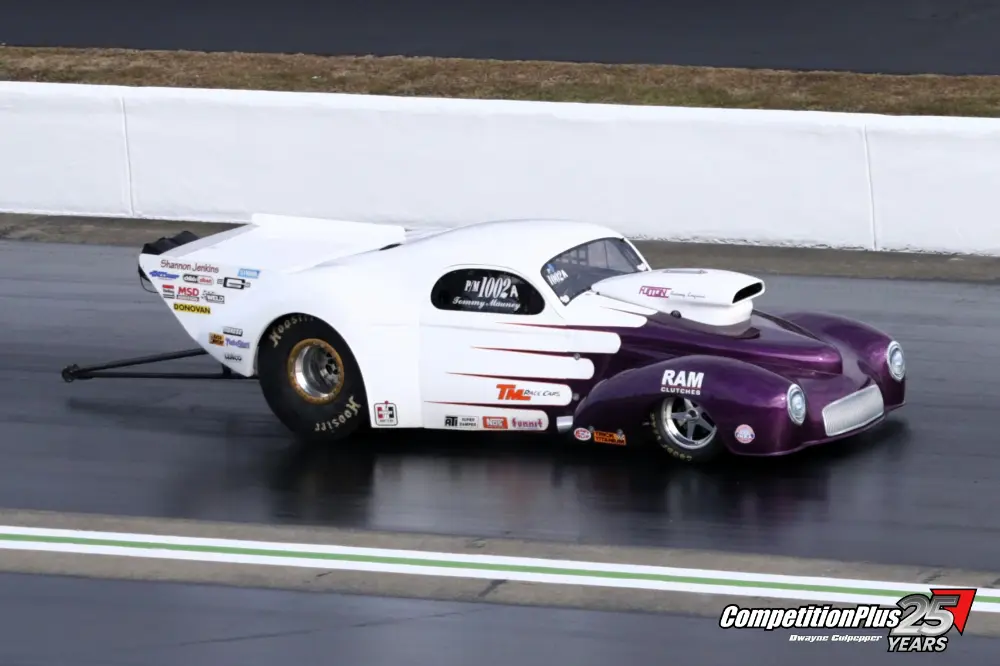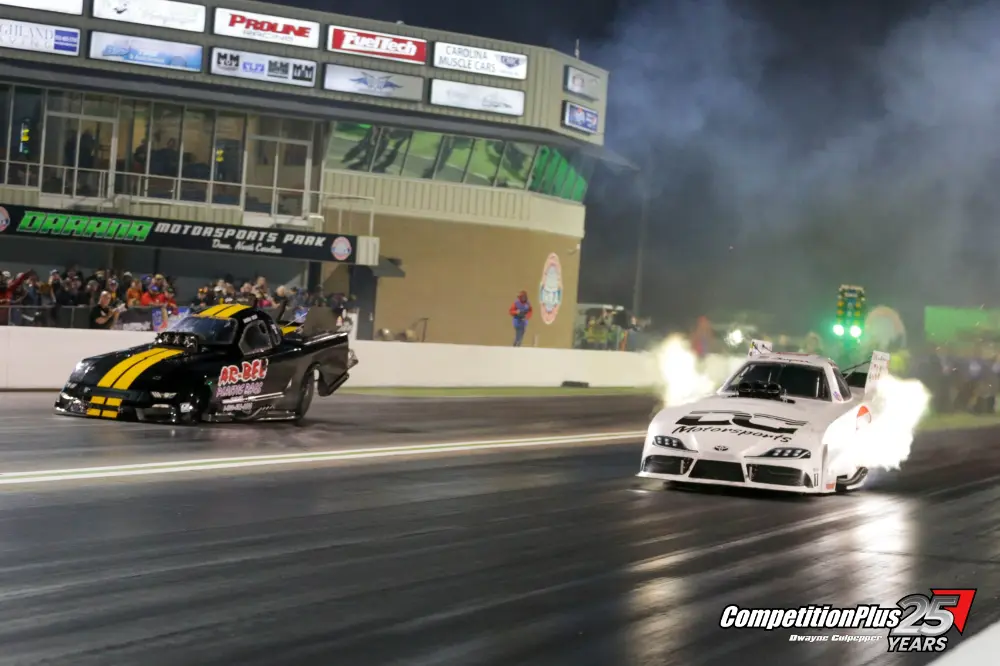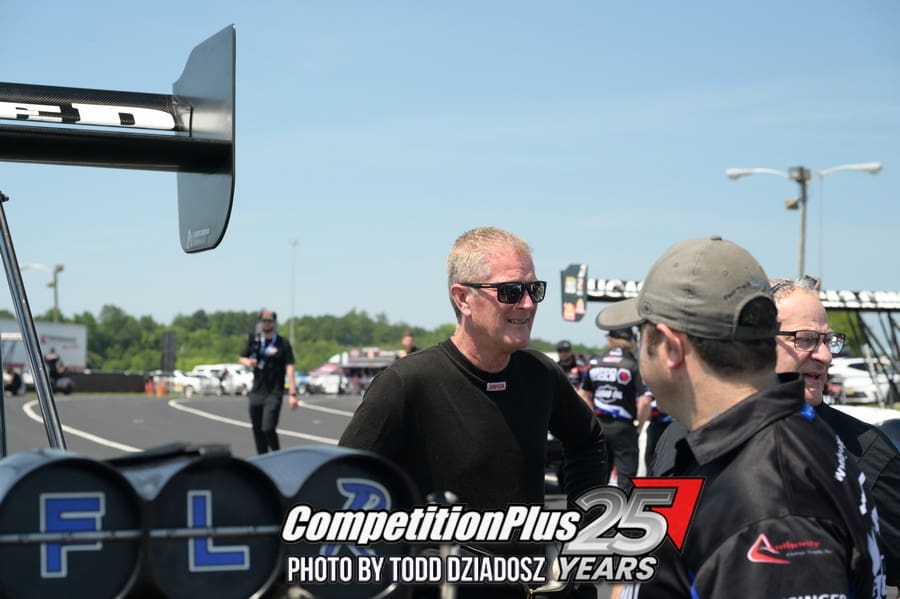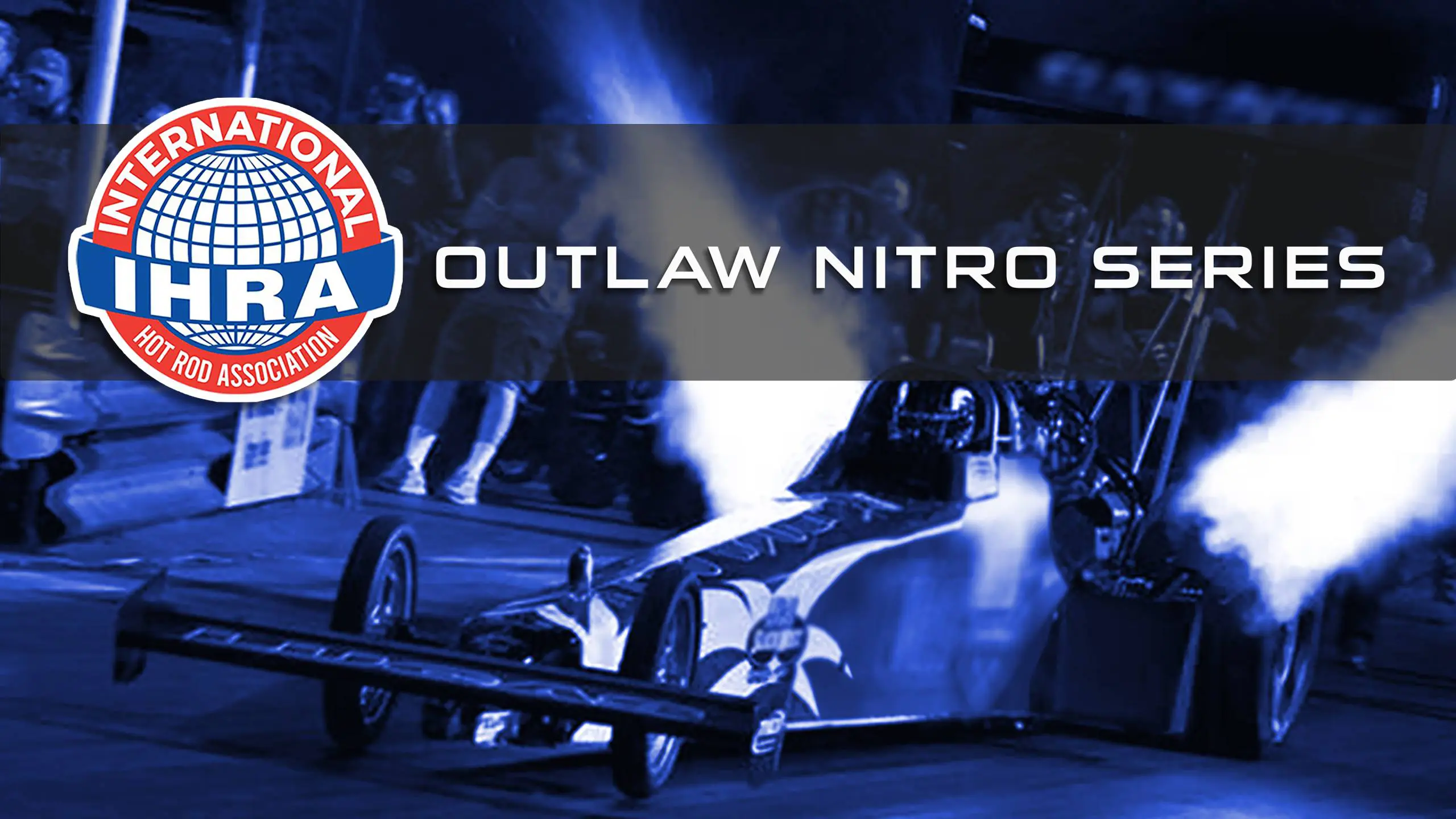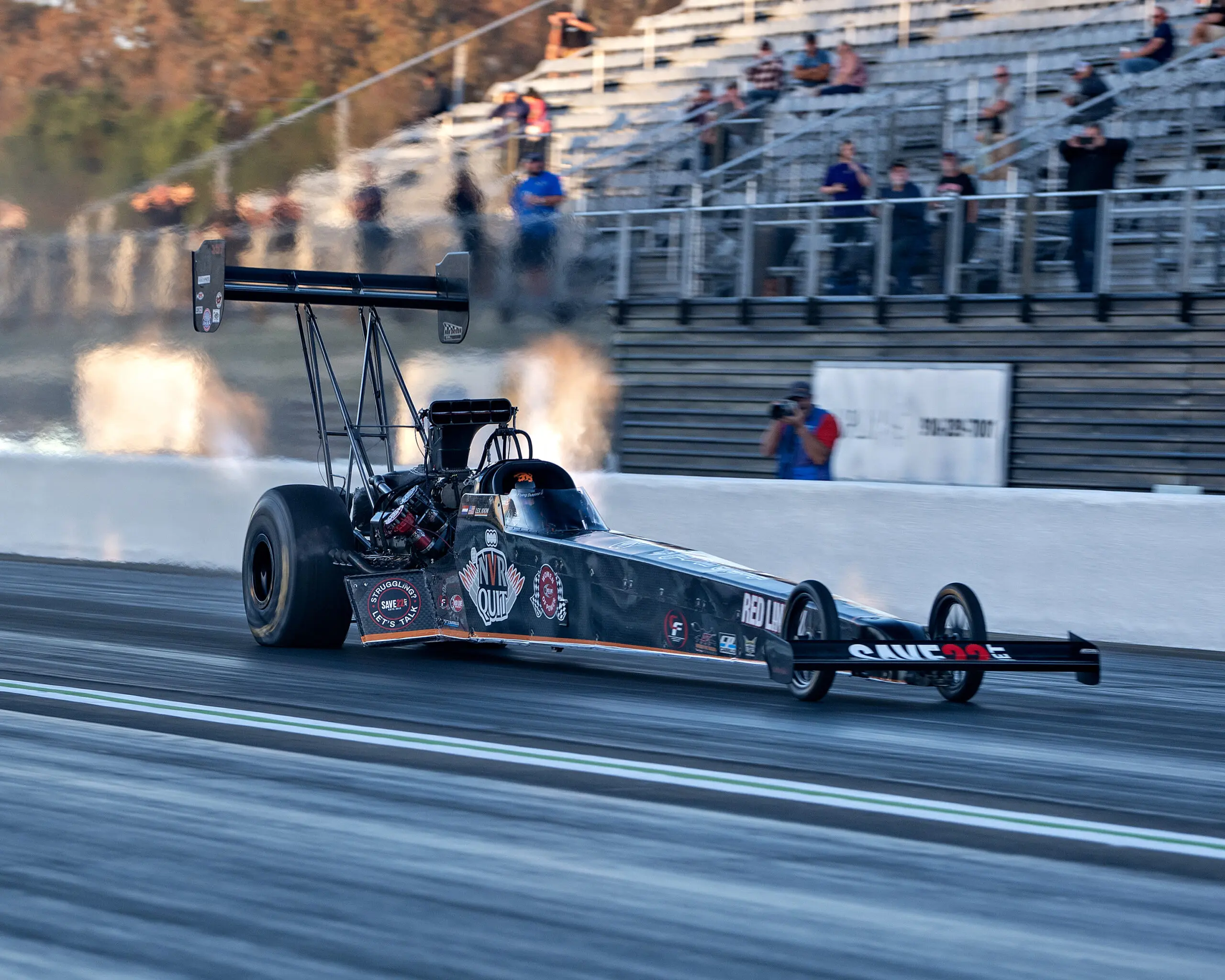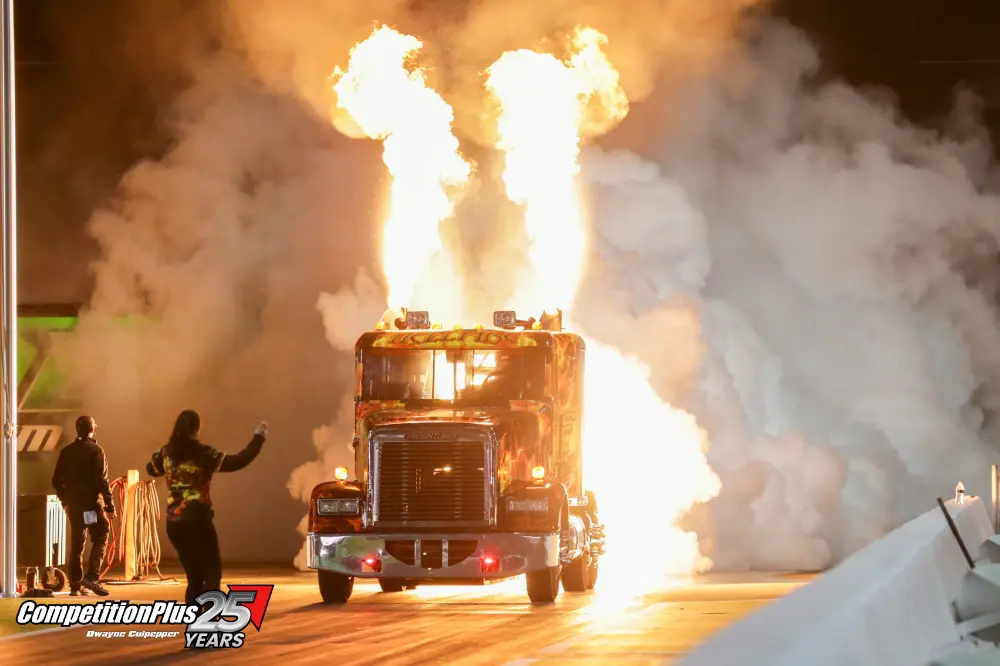

There was a glaring absence at the recently completed Denso NHRA U.S. Nationals at Lucas Oil Raceway just outside of Indianapolis. Unless one is into the sportsman ranks, it might have been gone unnoticed.
The Factory Stock Showdown, the division created for factory-built race cars, was missing its frontrunning Ford Cobra Jet Mustangs. Chris Holbrook and the Skillmans, Bill, and Drew opted out of the Big Go.
“We’re just sick of going fast and working on our cars and getting punished every time we’d go out there and do good,” said Holbrook, who led the Factory Stock Showdown points headed into Indianapolis. In fact, Holbrook and the Skillmans comprised the top three spots.
“After every race last year, we got penalized and had to make a change, and we suffered through it because Skillman was fighting for a championship – we wanted the championship,” Holbrook said. “After the first race this year, we went out, and they hit us again. We just made the decision that we’re not going to go through this again.
“Instead of giving everybody else something to help them improve their performance, they keep hitting us and making us spend the money. It’s time for the other competitors to step up and work on their stuff and give them something to help them make their cars faster.”
Of the 23 Factory Stock Showdown cars entered in the Denso NHRA U.S. Nationals, only one was a Ford. Kevin Skinner landed in the No. 12 spot with an 8.079, a little over .12 slower than No. 1 qualifier and eventual winner Aaron Stanfield.
 Those gearheads who are familiar with the early history of Pro Stock will recall in 1972, with support from the manufacturer, Mopar drivers boycotted the season following what they felt was unfair rules adjustments. However, this wasn’t a racer-inspired protest. The directive came from Chrysler.
Those gearheads who are familiar with the early history of Pro Stock will recall in 1972, with support from the manufacturer, Mopar drivers boycotted the season following what they felt was unfair rules adjustments. However, this wasn’t a racer-inspired protest. The directive came from Chrysler.
Holbrook said this “protest” was his and the Skillmans’ choice. However, that’s not to say it didn’t get the manufacturer’s attention.
CompetitionPlus.com reached out to executives from Ford’s motorsports division who declined comment citing, “they’re continuing on-going discussions about the future rules for NHRA.”
Holbrook said the Skillmans are fed up with the continuing tinkering with the rules. The stance he said is affecting his racing engines business, but it is one he understands fully.
“It sucks because it’s hurting my business,” Holbrook said. “Less races, then that’s less wear and tear on engines and less business for me. So, I really wish that [NHRA] would at least call us or call me and talk to me about it. Don’t just make a change without even discussing it with me.”
NHRA’s Ned Walliser said the parity adjustments are in line with the eliminator’s vision. He believes the assessment of getting penalized because of hard work is Holbrook’s perception but not reality.
“Our game plan for Factory Stock Showdown is to take all manufacturers and create a parity category,” Walliser explained. “And in parity, we have always aimed for eight seconds flat to 7.90 in real good conditions. We had really good conditions in Indy and guess where we ran? 7.90. We are hitting our performance mark, and we believe we have close parity between the three. If one manufacturer continuously outruns and can outperform, then it needs to be reeled in.”
With this directive of keeping the class in the 7.90 range, speeding up the slower combinations isn’t feasible for maintaining the class’s direction.
“The intent of the category was based on a [SFI-certified] 7.50 chassis,” Walliser explained. “Everybody thinks if you have a chassis certification that’s good to 7.50, you can run right up to 7.51. And in fact, that is true, but that may not be the best-educated way to go about the category.

“When you have a car that’s 3,600 pounds and running 790, 80, that’s plenty fast on a nine-inch tire. With our track prep, we feel comfortable with those speeds, and our drivers feel comfortable with those speeds. We do not want to approach the 750s, we want 8.0 to 7.90 for the category, and parity is the utmost importance.”
Holbrook understands the NHRA wants to keep the class in the 7.90s but believes the teams must dip into the forbidden zone before penalizing.
“At that first race, I went 7.91,” Holbrook explained. “And then for them to just hit us so hard after one race, especially in this crazy year, it was just crazy. And I get it, it’s politics. But they probably got [Don] Schumacher complaining, all the Chevy guys are complaining and here’s G.M. and Chrysler giving them money and Ford isn’t. So, they’re going to listen to them.”
Walliser said it’s a .03 of a second advantage, which automatically triggers a parity review rather than politics.
“A lot of the Fords gave up last year, not my customers, but some of the other Ford competitors,” Holbrook said. “They were done with NHRA because all the rules changed and it was just myself and some of my customers running over there in NHRA. And so, now this year, they got rid of us, you know.”
Walliser contends NHRA hasn’t gotten rid of anybody.
“We can’t control who comes to the event,” Walliser said. “We can post a schedule, a purse, and call you to the lanes. We’re going to run the cars that appear. And if you feel you’re going to take your football and go home, we can’t control that. That’s your decision, not ours.”
Five days ago, Holbrook listed his car for sale on social media. Missing the U.S. Nationals was painful but necessary, he believes.
“It’s very heartbreaking to know I could have gone to Indy, and I was already in one final that they were going to run off there from the Summernationals and knowing I could go there and maybe even possibly double up. I already have three wins at the U.S. Nationals, and to get another one, it means a lot to me.”
But for Holbrook, taking a stand meant even more.
Get yours today, and help us promote the place where you have gotten your insider info for the last twenty years. #CPApparel #DragRacingNews https://t.co/CMJZaaBxeH pic.twitter.com/Ip8QDeVctZ
— Competition Plus (@competitionplus) September 7, 2020










